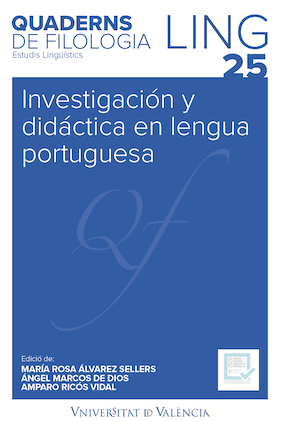Phraseodidactic. Situational frameworks for working on Phraseological Statements in the PLE class for Spanish speakers
DOI:
https://doi.org/10.7203/qf.0.19076Keywords:
Portuguese phraseology, phraseological statements, pragmatics, situational frams, Portuguese foreign language. Abstract
Abstract
The objective of this work is to delimit the pragmatic-discursive functions of some of the most common Phraseological Statements in Portuguese, offering the “situational frames” (Corpas Pastor, 1996) that will make it possible for Spanish-speaking students to understand and function. The “situational frames” we offer are framed in the dynamic interaction between speaker and listener, providing all the necessary information for their use: characteristics of the participants in the interaction, characteristics of the scenario, their motivation, the context –sequence, prosodic elements, non-verbal language, register–, variants, synonyms, as well as the socio-cultural knowledge shared by the speakers.
 Downloads
Downloads
Downloads
Published
How to Cite
-
Abstract642
-
PDF (Español)448
Issue
Section
License
 Este obra está bajo una licencia de Creative Commons Reconocimiento-NoComercial-SinObraDerivada 4.0 Internacional.
Este obra está bajo una licencia de Creative Commons Reconocimiento-NoComercial-SinObraDerivada 4.0 Internacional.
Authors who publish with this journal agree to the following terms:
- Authors retain copyright and grant the journal right of first publication with the work simultaneously licensed under a Creative Commons Attribution License that allows others to share the work with an acknowledgement of the work's authorship and initial publication in this journal.
- Authors are able to enter into separate, additional contractual arrangements for the non-exclusive distribution of the journal's published version of the work (e.g., post it to an institutional repository or publish it in a book), with an acknowledgement of its initial publication in this journal.
- Authors are permitted and encouraged to post their work online (e.g., in institutional repositories or on their website) prior to and during the submission process, as it can lead to productive exchanges, as well as earlier and greater citation of published work (See The Effect of Open Access).



